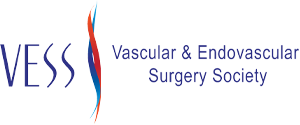Univerity of Texas Southwestern Vascular Surgery Integrated Residency
Contact: Shirling Tsai
Training Paradigms: Integrated Vascular Surgery Residency (0+5) and Vascular Surgery Fellowship (5+2)
Description: The Division of Vascular Surgery at UT Southwestern has a 5-year integrated Vascular Surgery Residency, in addition to a 2-year Vascular Surgery Fellowship. Residents in the Integrated Residency participate in rotations in General Surgery, Radiology, Vascular Medicine/Cardiology, and Podiatry, among others, as PGY 1-3. The PGY 4 and 5 years are dedicated to Vascular Surgery. Throughout training, residents rotate at Clements University Hospital, Parkland Memorial Hospital, the Dallas VA Medical Center, and Children’s Hospital. Trainees are exposed to the entire breadth of operative techniques, ranging from basic vascular surgery to complex open vascular and endovascular procedures. Residents are also expected to attend formal educational conferences covering principals of vascular surgery, interpretation of non-invasive vascular lab studies, approach to clinical research, and simulation sessions. Graduates of our Vascular Surgery Fellowship program have gone on to pursue successful careers in both private practice and academic medicine.

